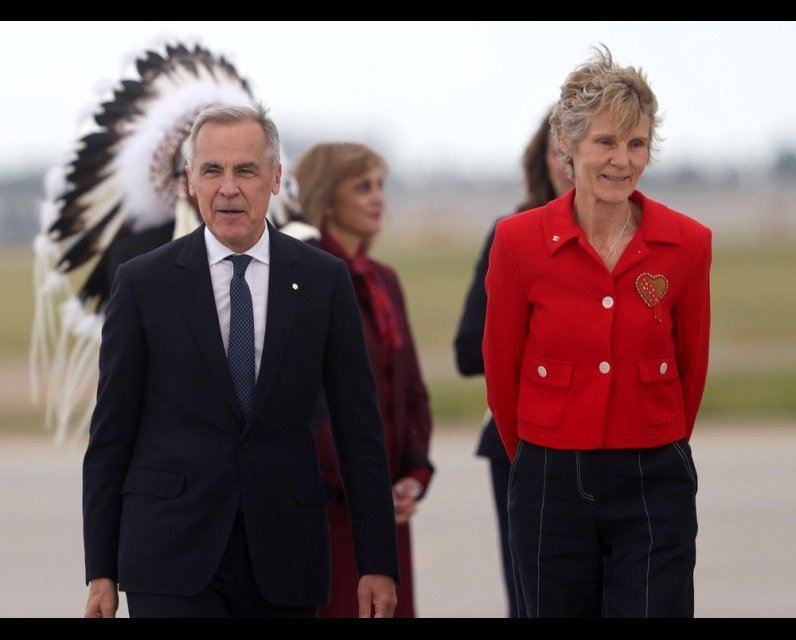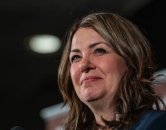Source Feed: National Post
Author: Christopher Nardi
Publication Date: June 15, 2025 - 18:56
G7 world leaders arrive in Alberta amid Middle East crisis and global tariff uncertainty
June 15, 2025

BANFF, Alta. — The heads of the world’s richest economies are converging on Alberta today for one of the most high-stakes G7 meetings in recent memory amid a U.S.-led global tariff war and the growing crisis in the Middle East.
On many of the G7’s key issues — namely the global trade war and Israel’s military operations in Gaza — Trump and the rest of the G7 leaders are largely on opposite sides.
Canadian Prime Minister Mark Carney’s job as chair of the summit in Kananaskis, Alta., is to mediate discussions to make sure the tense alliance doesn’t blow up.
And that job has never been so complicated, G7 observers say.
On top of global issues such as Russia’s illegal invasion of Ukraine, ongoing Israeli military campaigns in Gaza and now Iran and the U.S.-led reshaping of global trade via sweeping tariffs, Carney will have to contend with the volatility and unpredictability of American President Donald Trump.
According to a schedule published by Carney’s office Sunday, the prime minister will meet Trump during a bilateral on Monday morning. It will be the first tête-à-tête between both men since Carney travelled to Washington last month.
On many issues including trade and the Israel-Hamas war, the G7 summit is like a game of tug-of-war. Pulling on one side are the leaders of the U.K., France, Italy, Japan and Germany, and pulling on the opposite side is Trump, with Carney in the middle of the rope trying to keep it from ripping.
The fact that the longtime Iran-Israel conflict has pivoted from proxy wars to full-on conventional war in the last few days makes Carney’s job even more difficult.
“It makes the already very difficult job of Prime Minister Carney to manage the G7 even more difficult. It adds another layer of risk and complexity,” said Thomas Juneau, a national security researcher and professor at the University of Ottawa.
Seven non-member countries also attending the G7 from the sidelines: Australia, Brazil, India, Mexico, South Africa, South Korea and Ukraine. Delegations from NATO, the UN and the World Bank will also be present.
On the eve of the summit, Carney had a first G7 bilateral with U.K. Prime Minister Kier Starmer during which the men dined and then watched the Edmonton Oilers play the Florida Panthers.
Before travelling to Kananaskis on Sunday, both leaders put out a press release promising to boost bilateral trade and increase collaboration in artificial intelligence, defence, intelligence sharing, quantum, critical mineral development and military cooperation.
Carney’s schedule Sunday showed he will be hosting bilateral meetings with the leaders of all those countries except South Korea and the World Bank. Those meetings will allow Carney to hammer out the final details of new partnerships or iron out irritants in each relationship without Trump in the room.
Though there have been tensions between G7 members going into a summit in the past, never has the volatility of a U.S. president so risked blowing up the entire meeting agenda, he said.
During the last G7 on Canadian soil in 2018, Trump and the U.S. had initially agreed to sign on to the final joint statement, only to pull out in spectacular fashion via a post on social media lobbed from Air Force One calling Prime Minister Justin Trudeau “dishonest and weak” over criticism of American tariffs.
Juneau and other observers interviewed by National Post say that volatility has only increased in Trump’s second mandate, increasing the risk of implosion of the 52-year-old alliance.
“It just adds another major level of risk for Prime Minister Carney to manage this in a way that it doesn’t blow up,” Juneau said. “Carney is not an experience politician, but he’s a very experienced, knowledgeable, skillful individual, and that makes a difference.”
But absent the discussions will be leaders from Middle Eastern countries. Canada invited the heads of Saudi Arabia and the United Arab Emirates (UAE), but both leaders declined last week.
The leaders’ meetings will cover global economic outlook, economic growth, security, public safety, energy security and the Ukraine-Russia war.
But likely to Ukrainian President Volodymyr Zelensky’s dismay, the growing crisis in the Middle East will likely infringe on discussions on Russia’s ongoing invasion of Ukraine.
“There will be a focus on Ukraine in terms of the international security part, but there will be, of course, a discussion on Gaza that has now expanded,” said a former government official with extensive experience organizing international summits.
National Post
cnardi@postmedia.com
Get more deep-dive National Post political coverage and analysis in your inbox with the Political Hack newsletter, where Ottawa bureau chief Stuart Thomson and political analyst Tasha Kheiriddin get at what’s really going on behind the scenes on Parliament Hill every Wednesday and Friday, exclusively for subscribers. Sign up here.
Our website is the place for the latest breaking news, exclusive scoops, longreads and provocative commentary. Please bookmark nationalpost.com and sign up for our daily newsletter, Posted, here.
In his hotel room in Tel Aviv, Canadian Artur Wilczynski has quickly adopted a routine intended to keep him alive: His smartphone flashes an alert that missiles are incoming, and he heads to a sub-basement bomb shelter to wait out the latest attack by Iran, listening for the exploding sky to go quiet again. Right now, there’s no way back to Canada for the retired public servant, who was visiting Israel from Ottawa as part of an international delegation invited by the country’s foreign ministry to meet with members of the LGBTQ+ community.
June 15, 2025 - 22:06 | Ian Bailey, Sophia Coppolino, Erin Anderssen | The Globe and Mail
June 15, 2025 - 22:03 | | CBC News - Canada
Canada’s largest private-sector union says former Canadian Auto Workers president Buzz Hargrove has died.In a statement Sunday, Unifor says Basil “Buzz” Hargrove was “a beloved and iconic figure in Canada’s labour movement” who “was a tireless advocate for working people and a deeply respected leader.”
June 15, 2025 - 21:24 | | The Globe and Mail


Comments
Be the first to comment